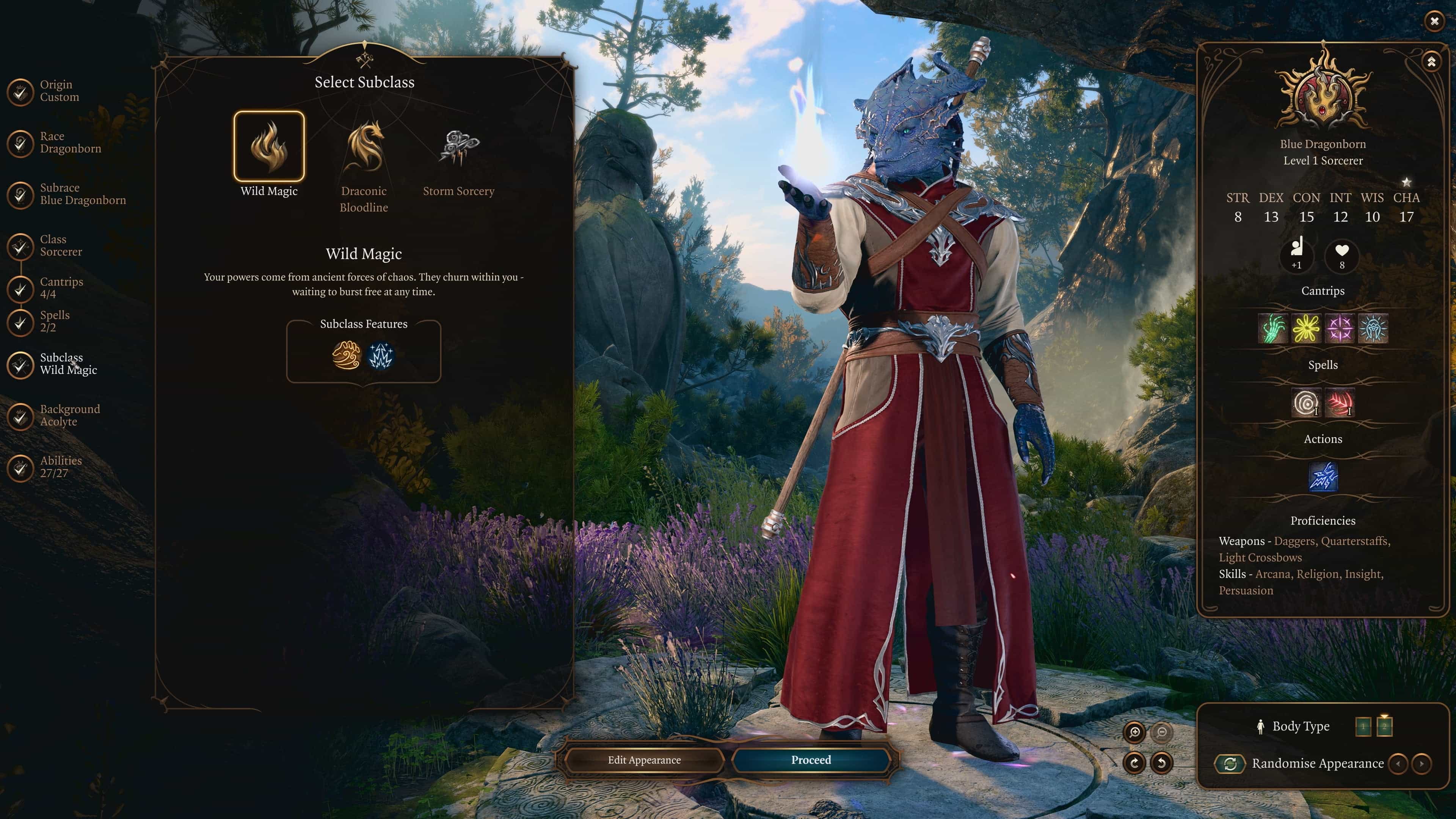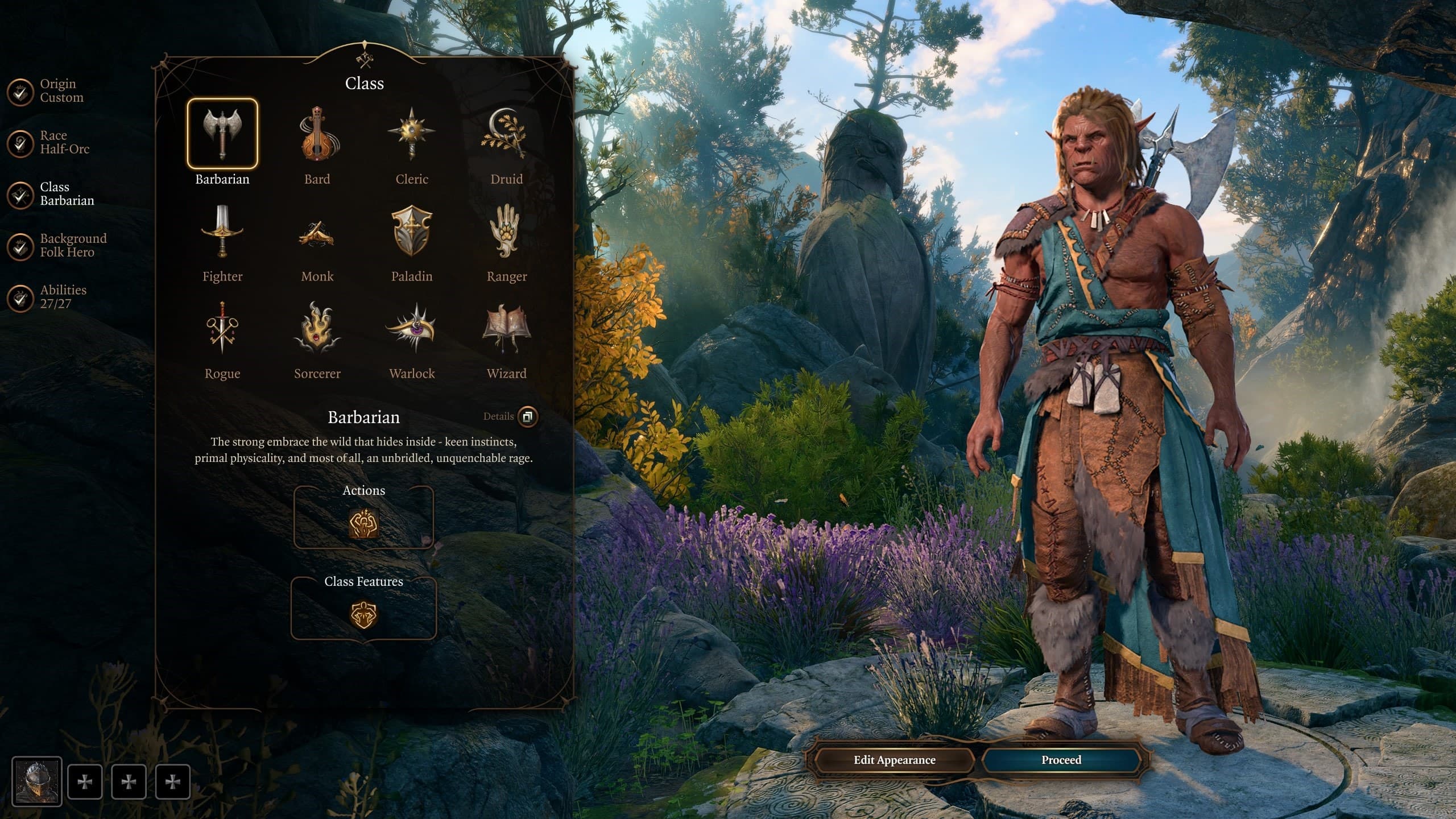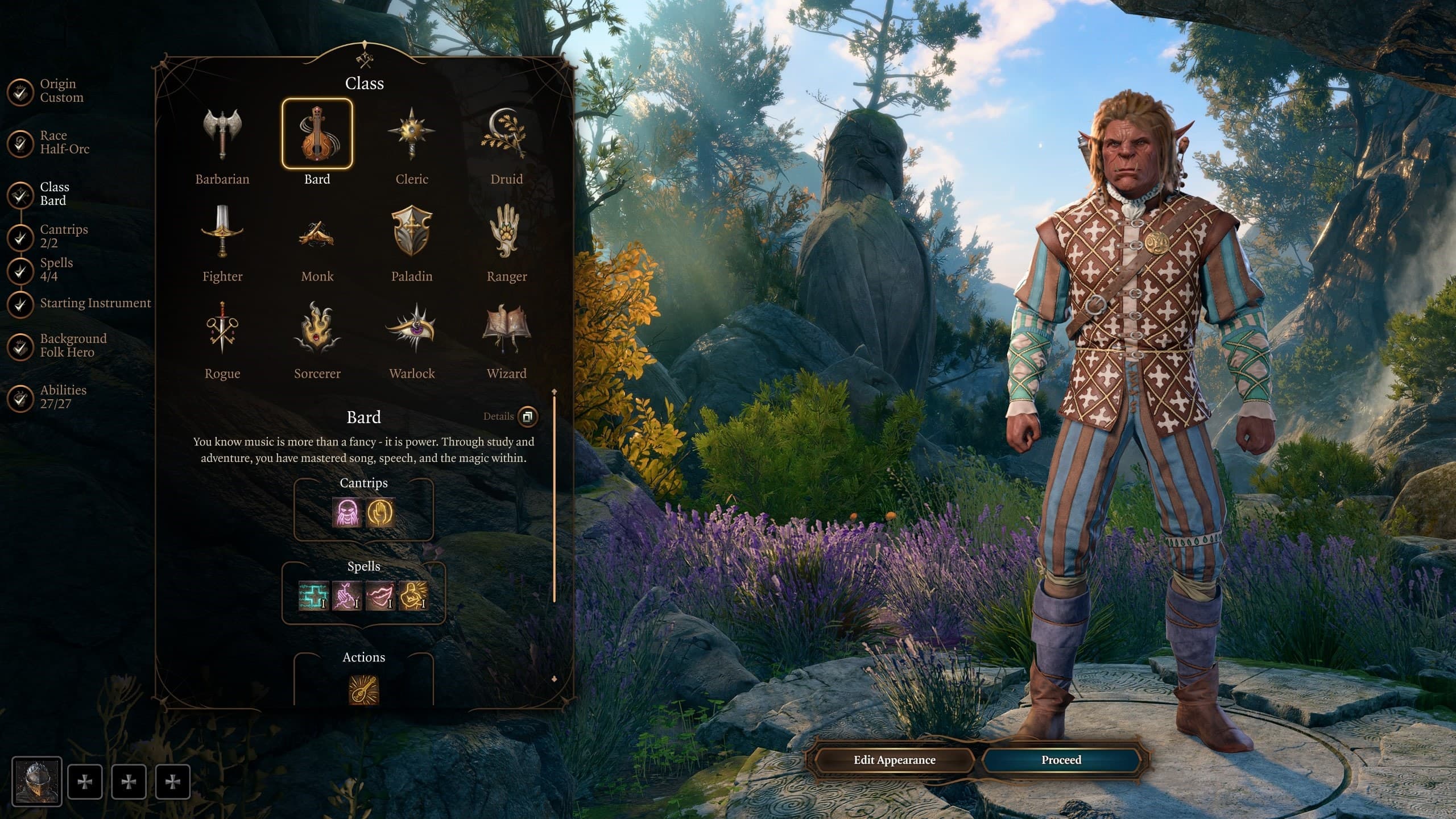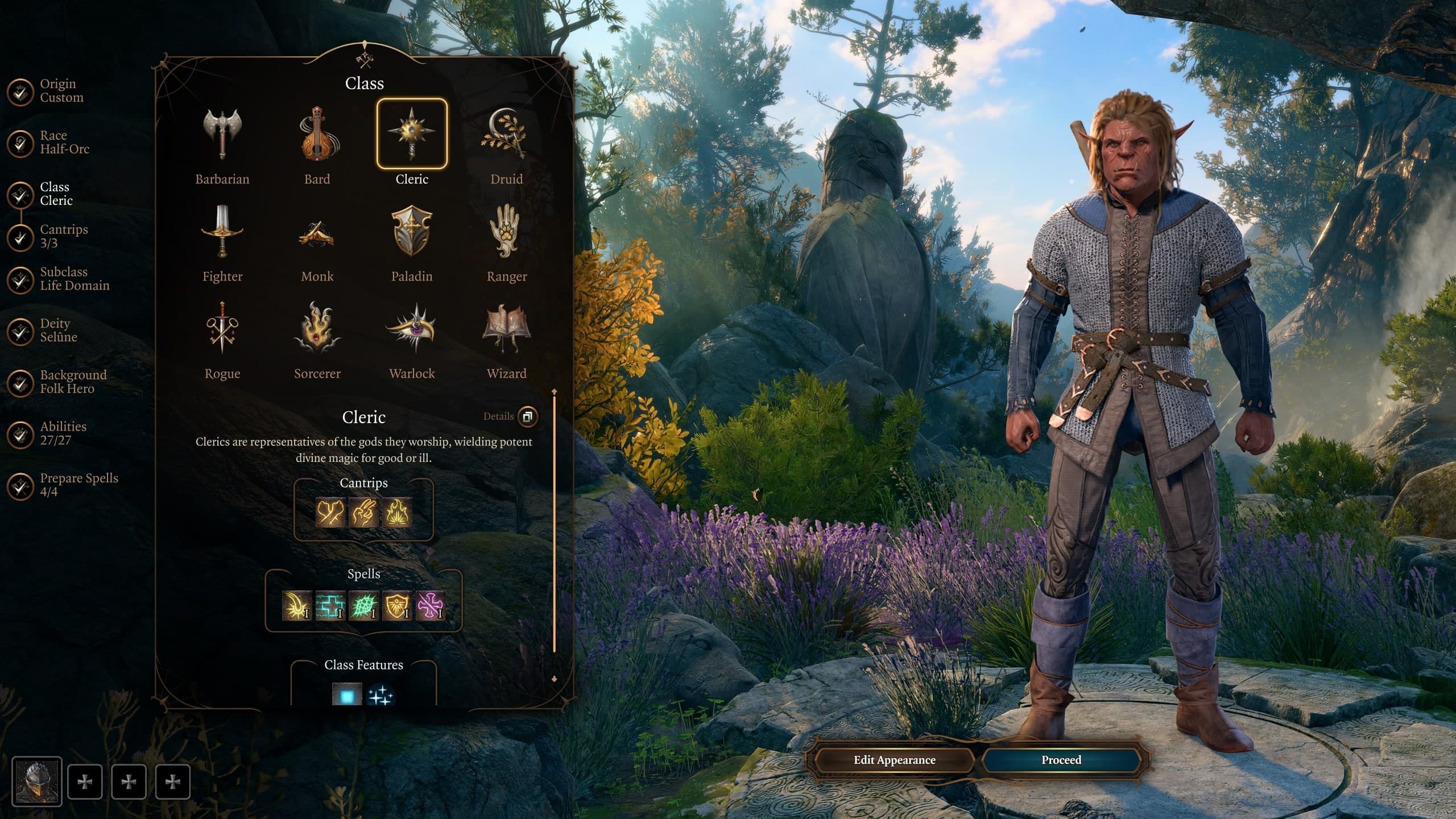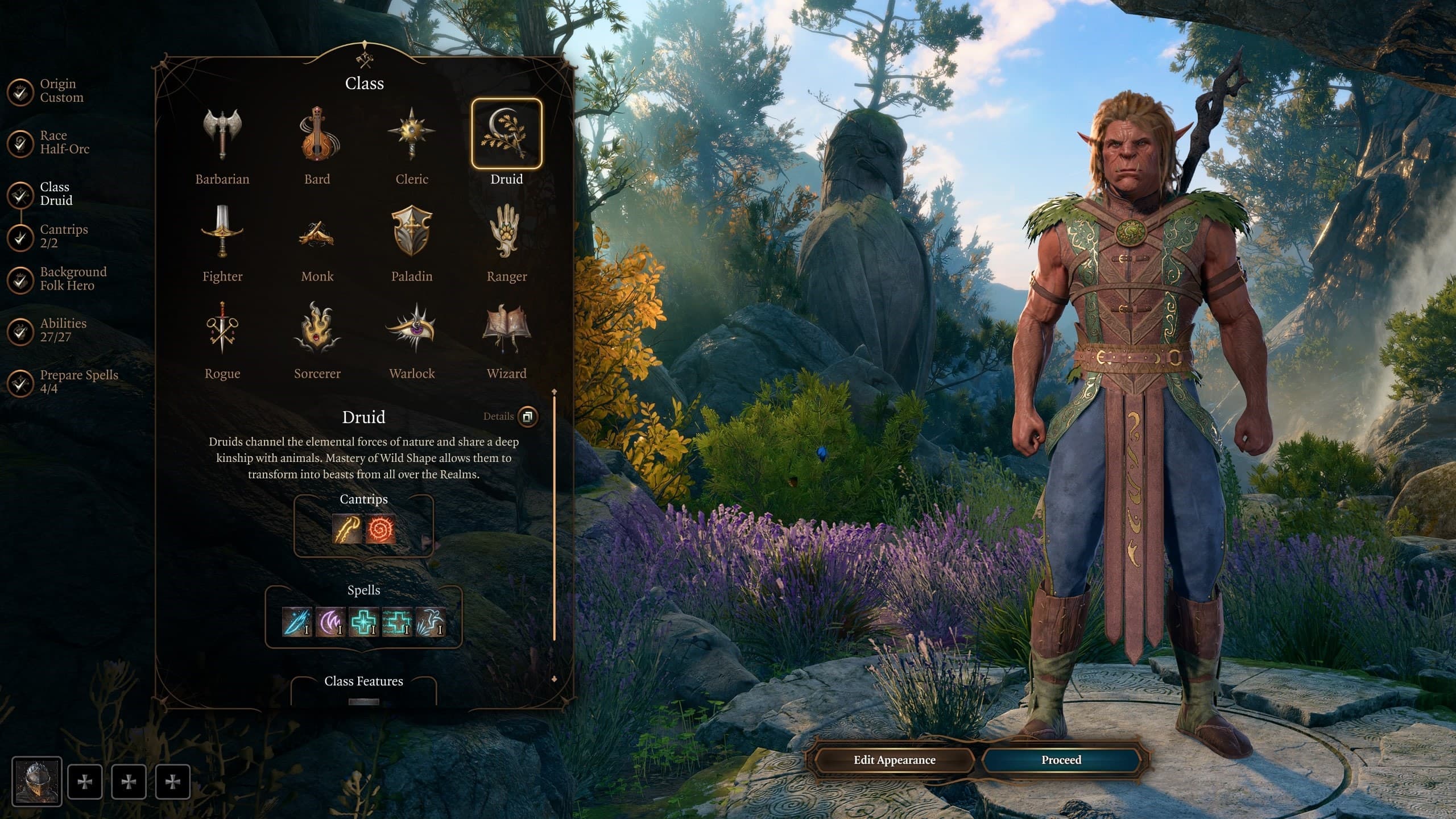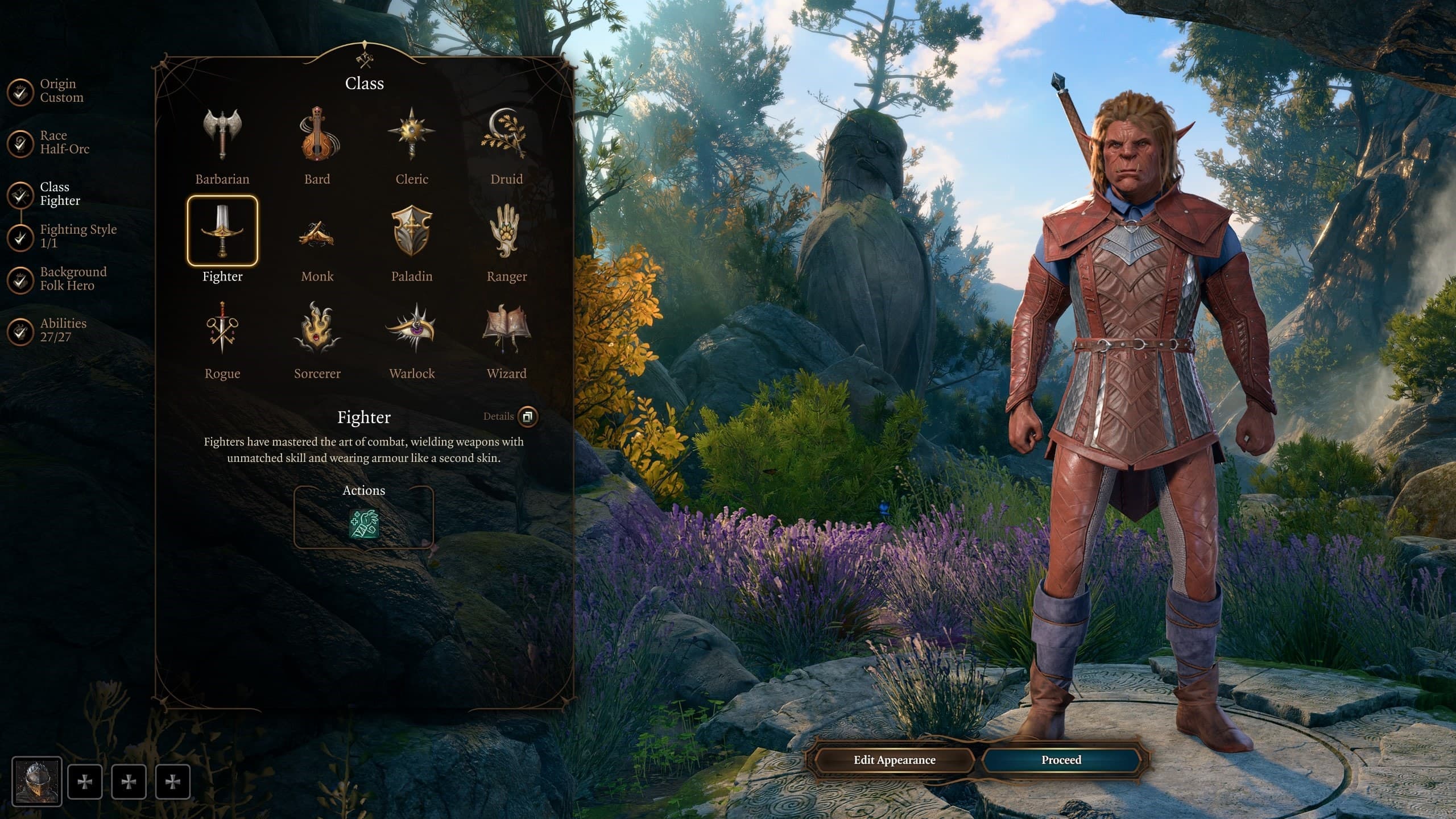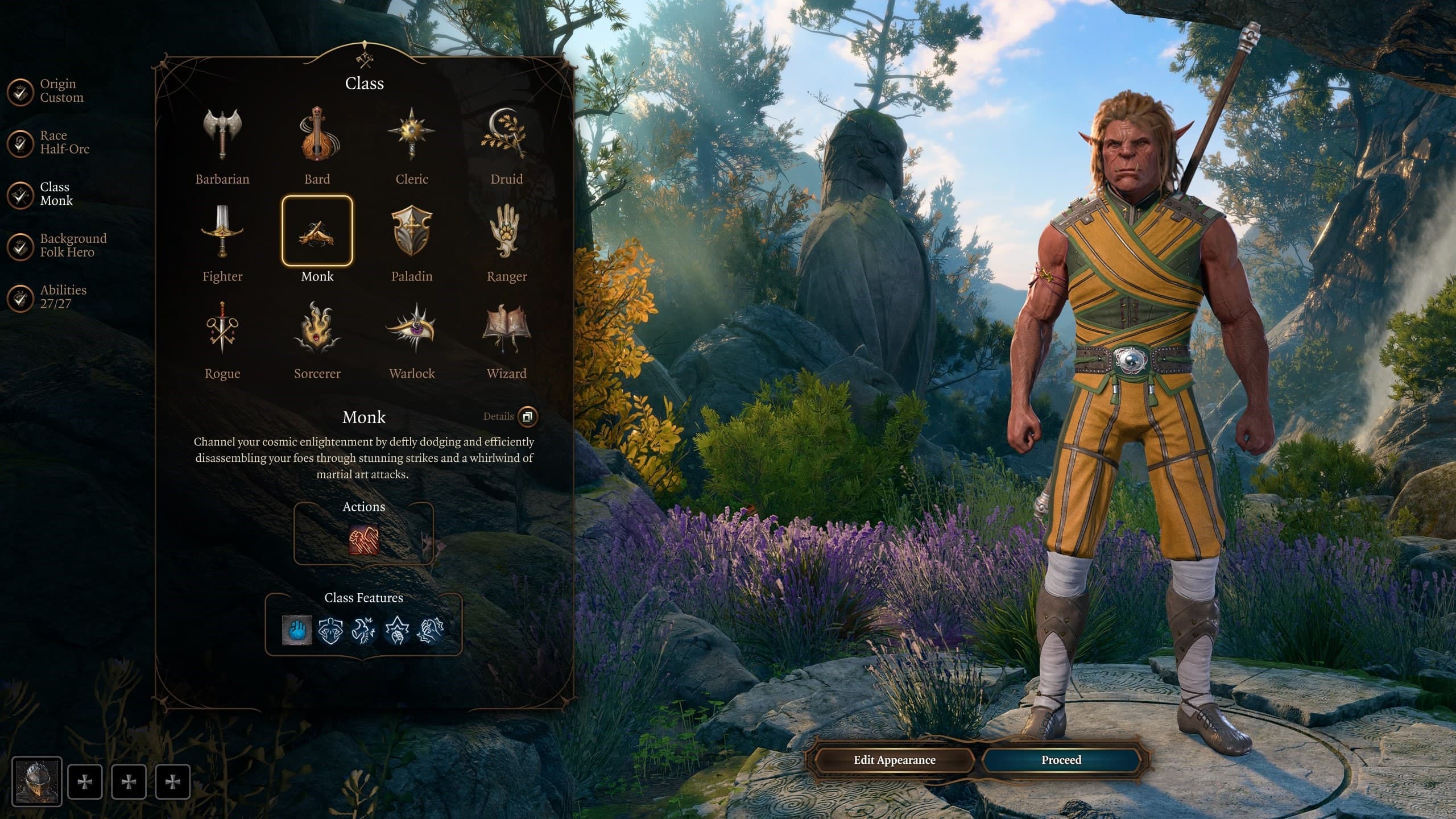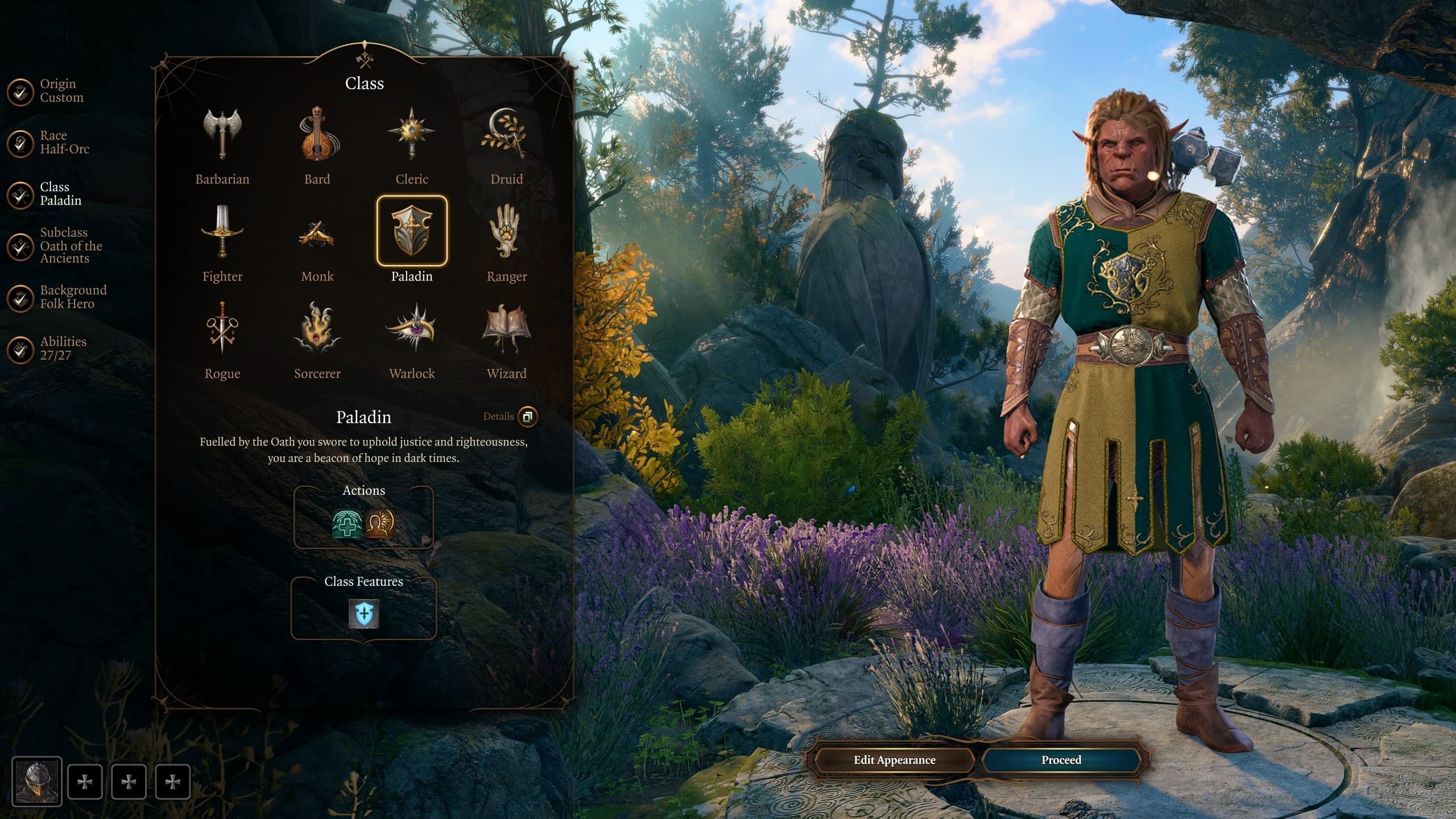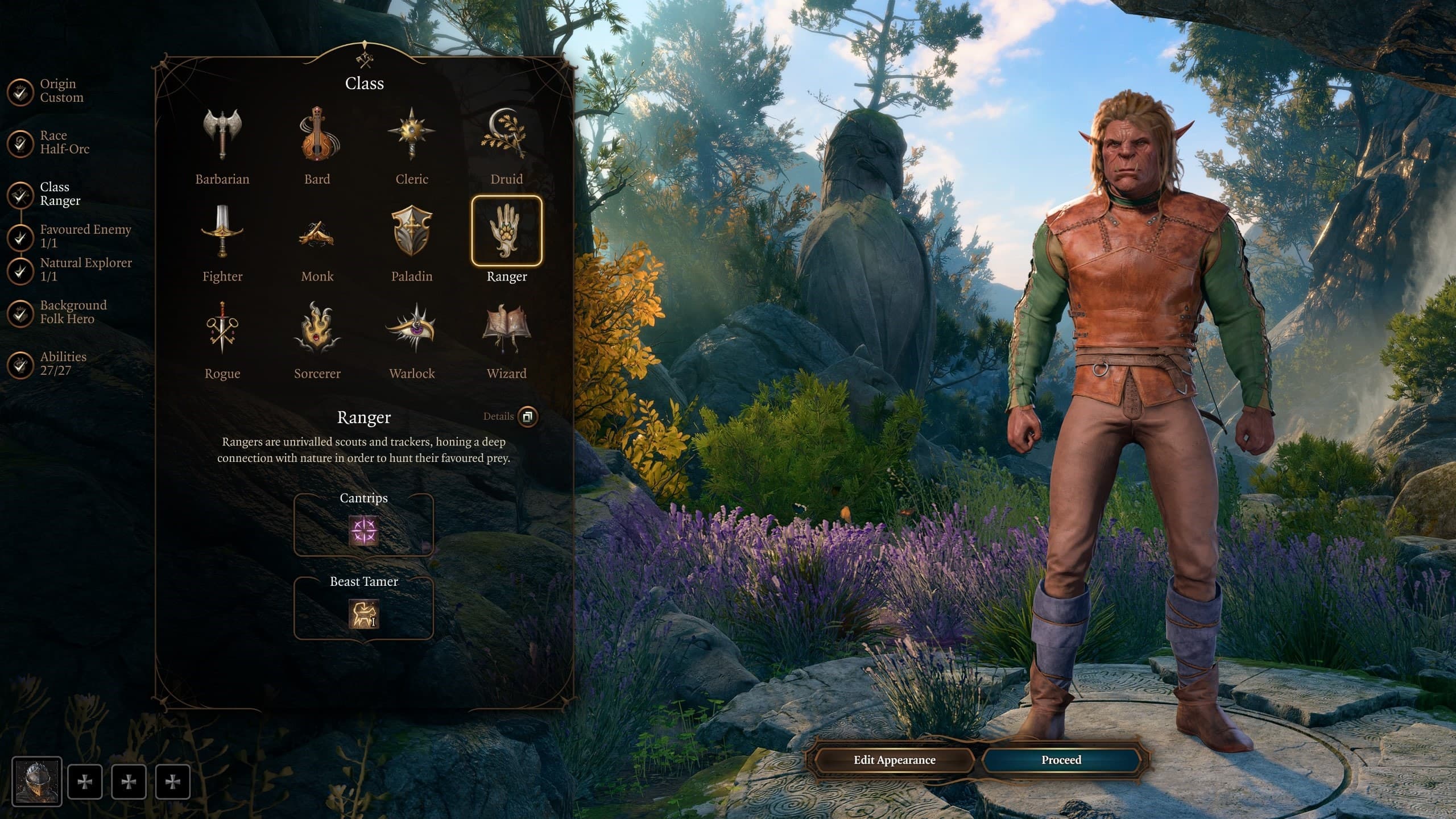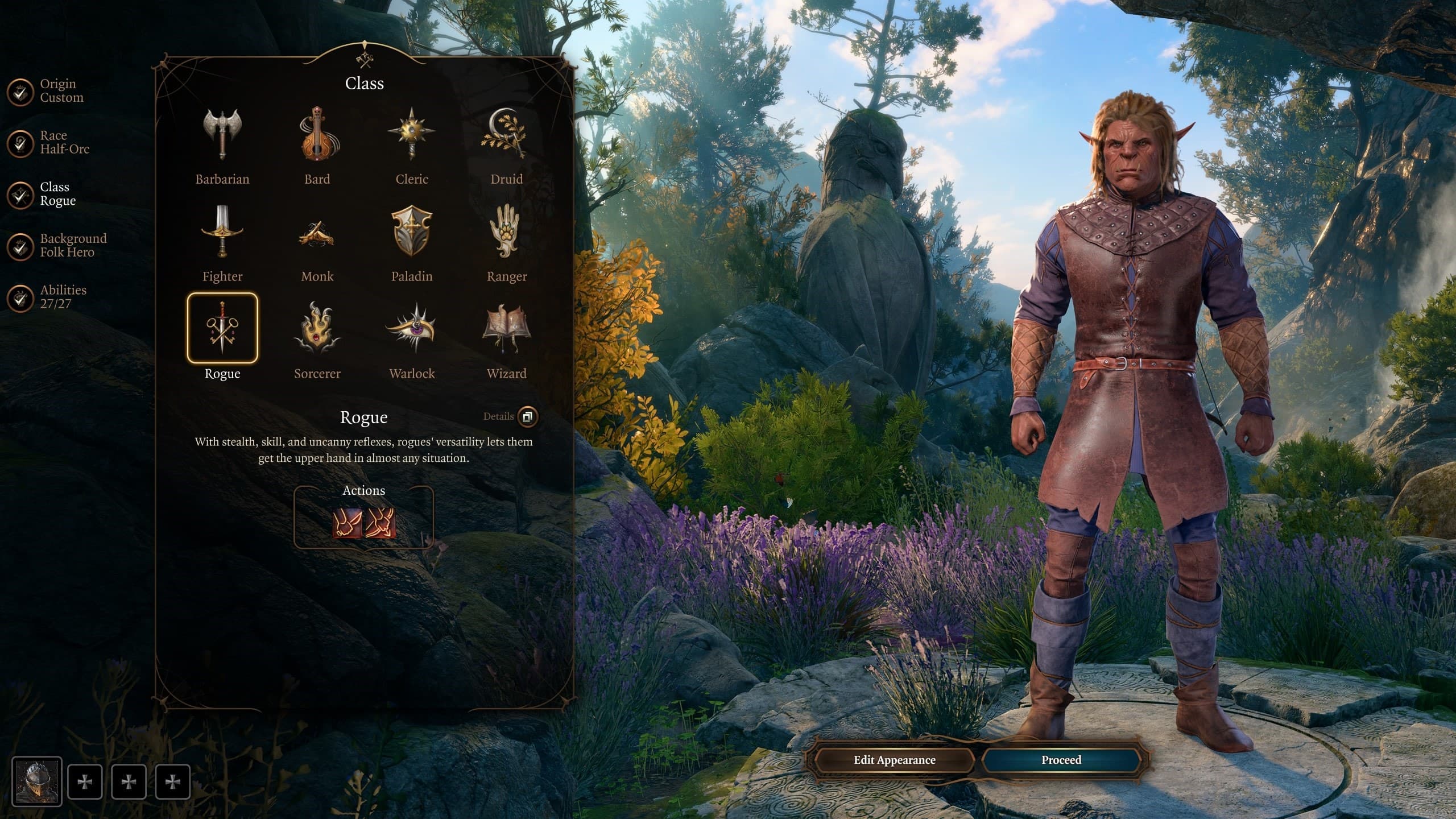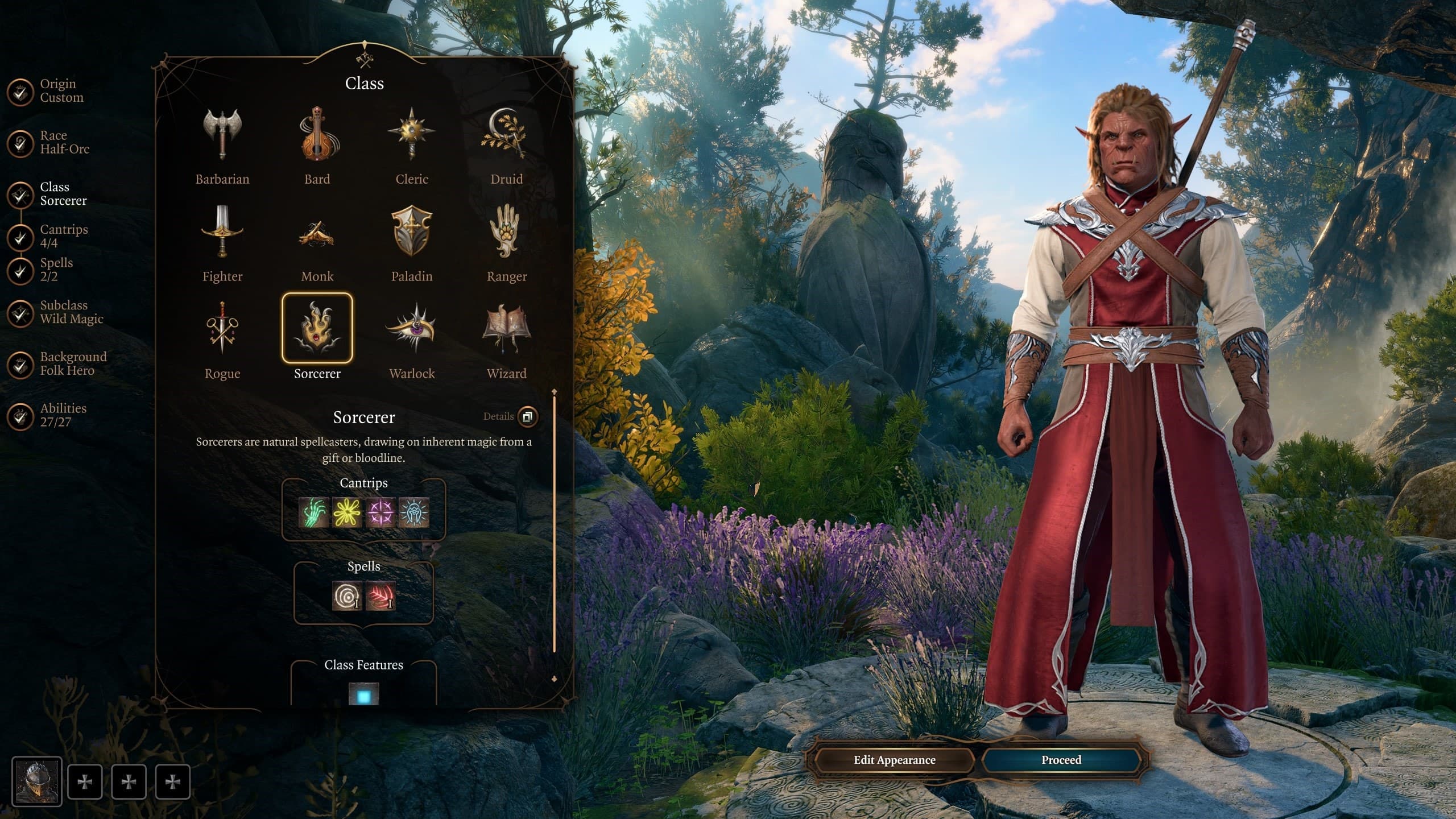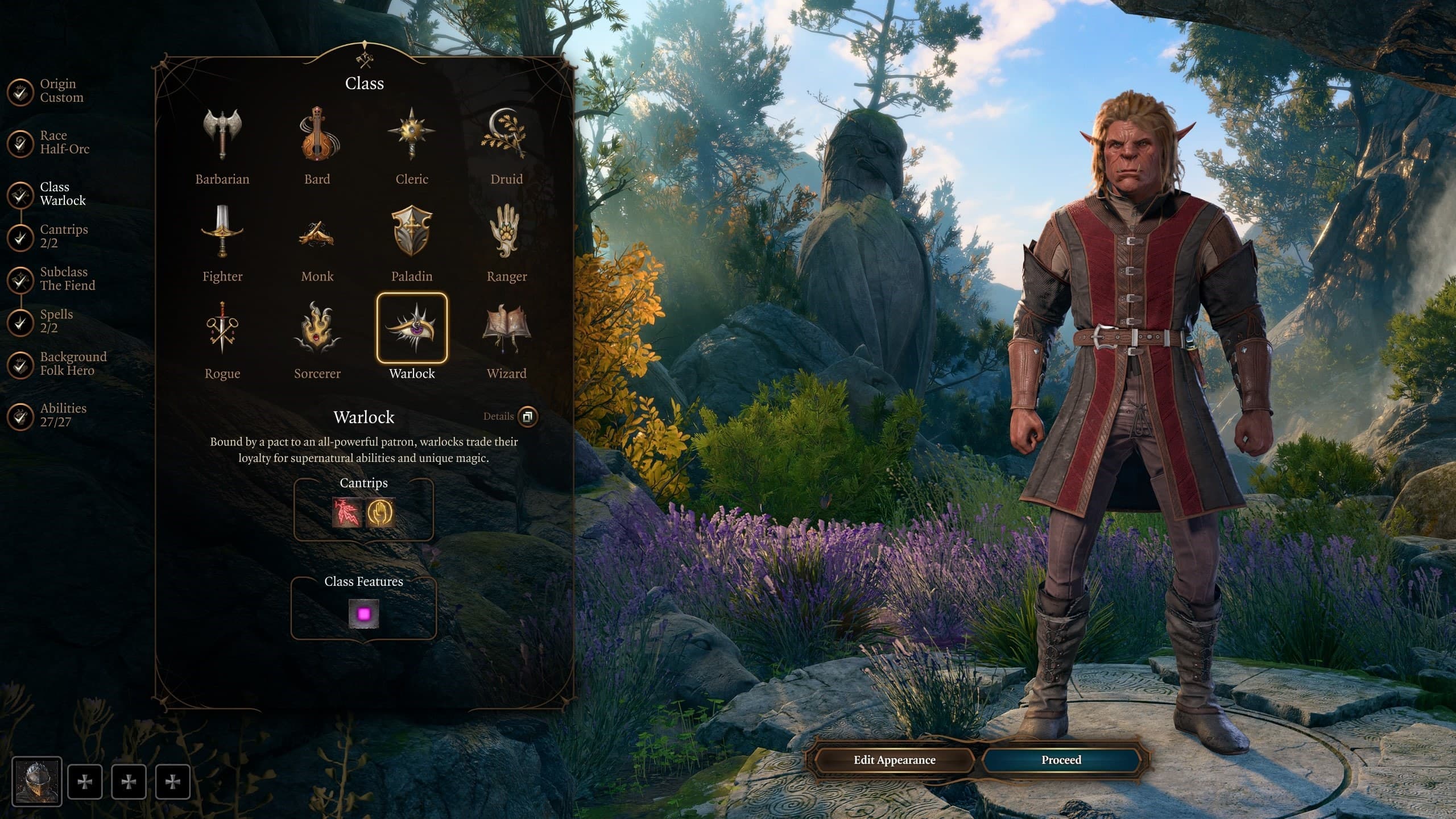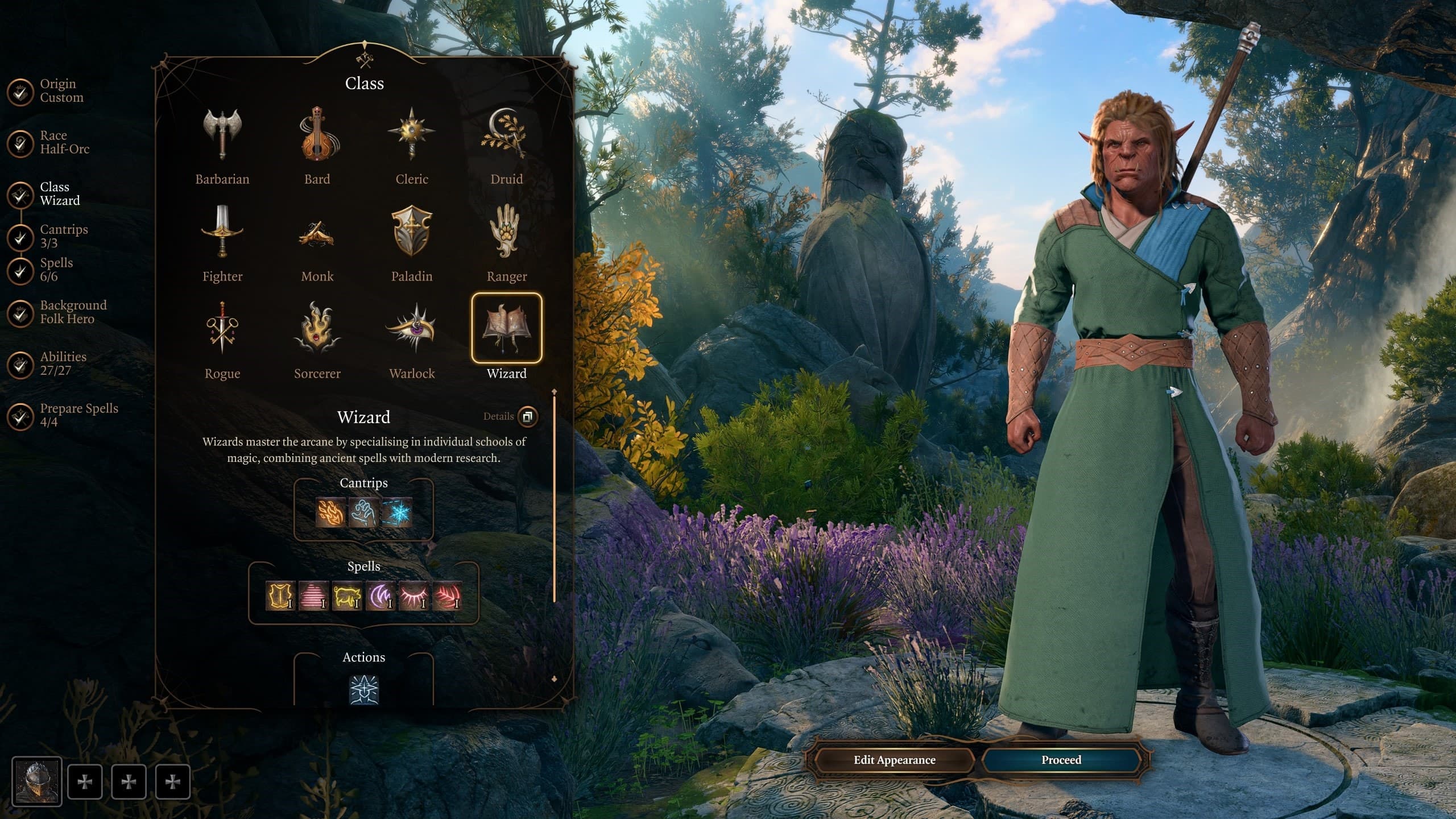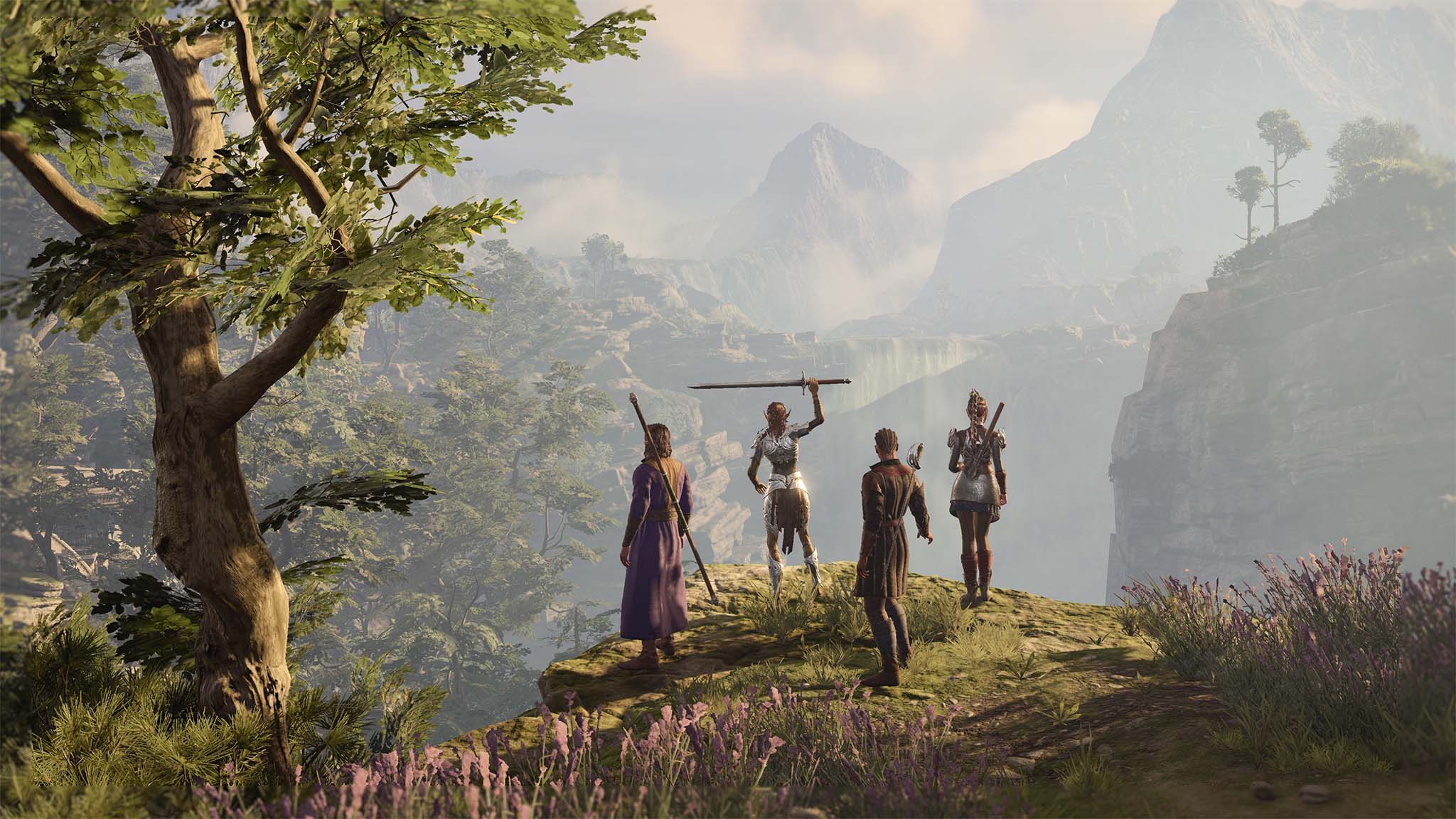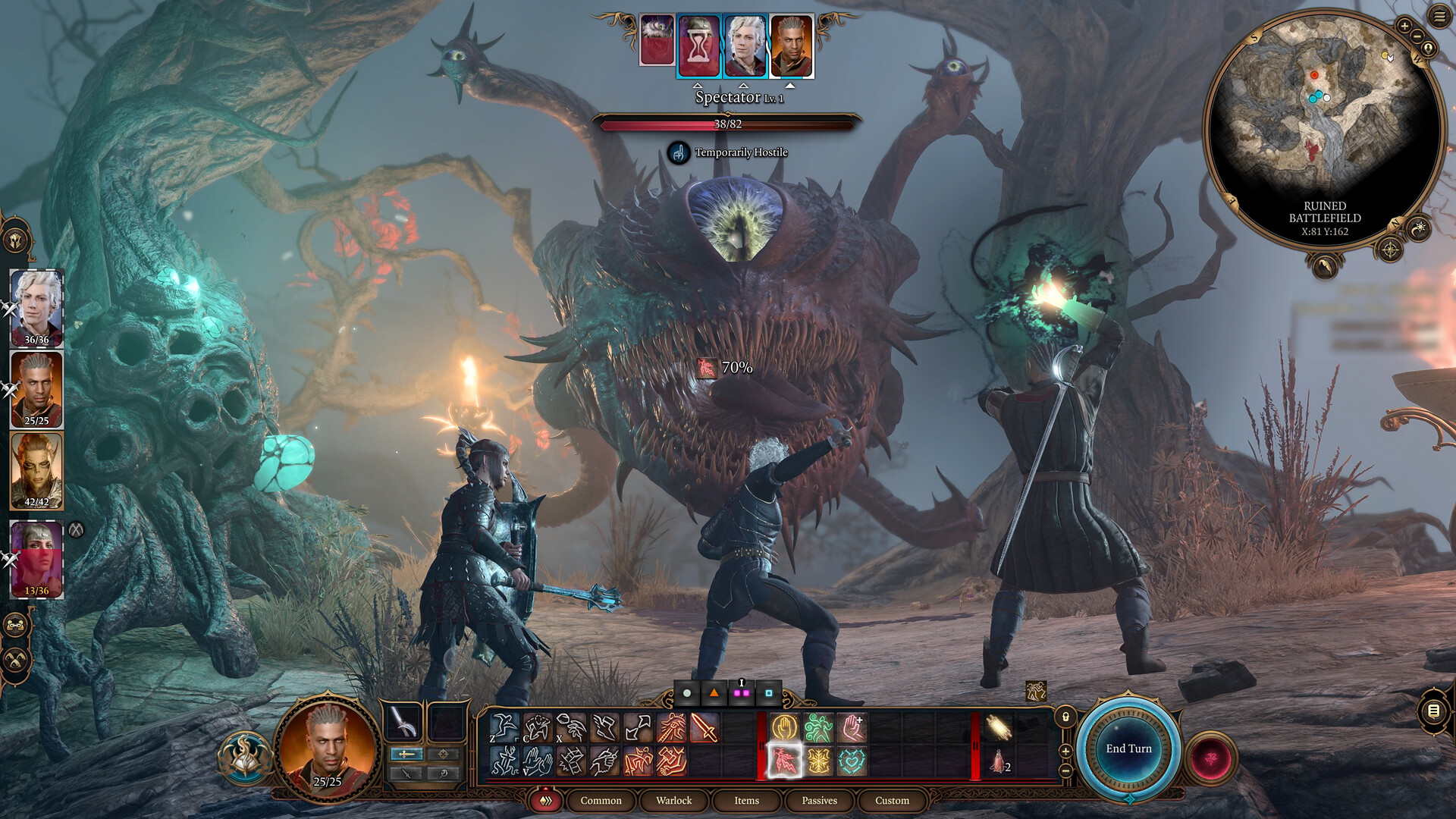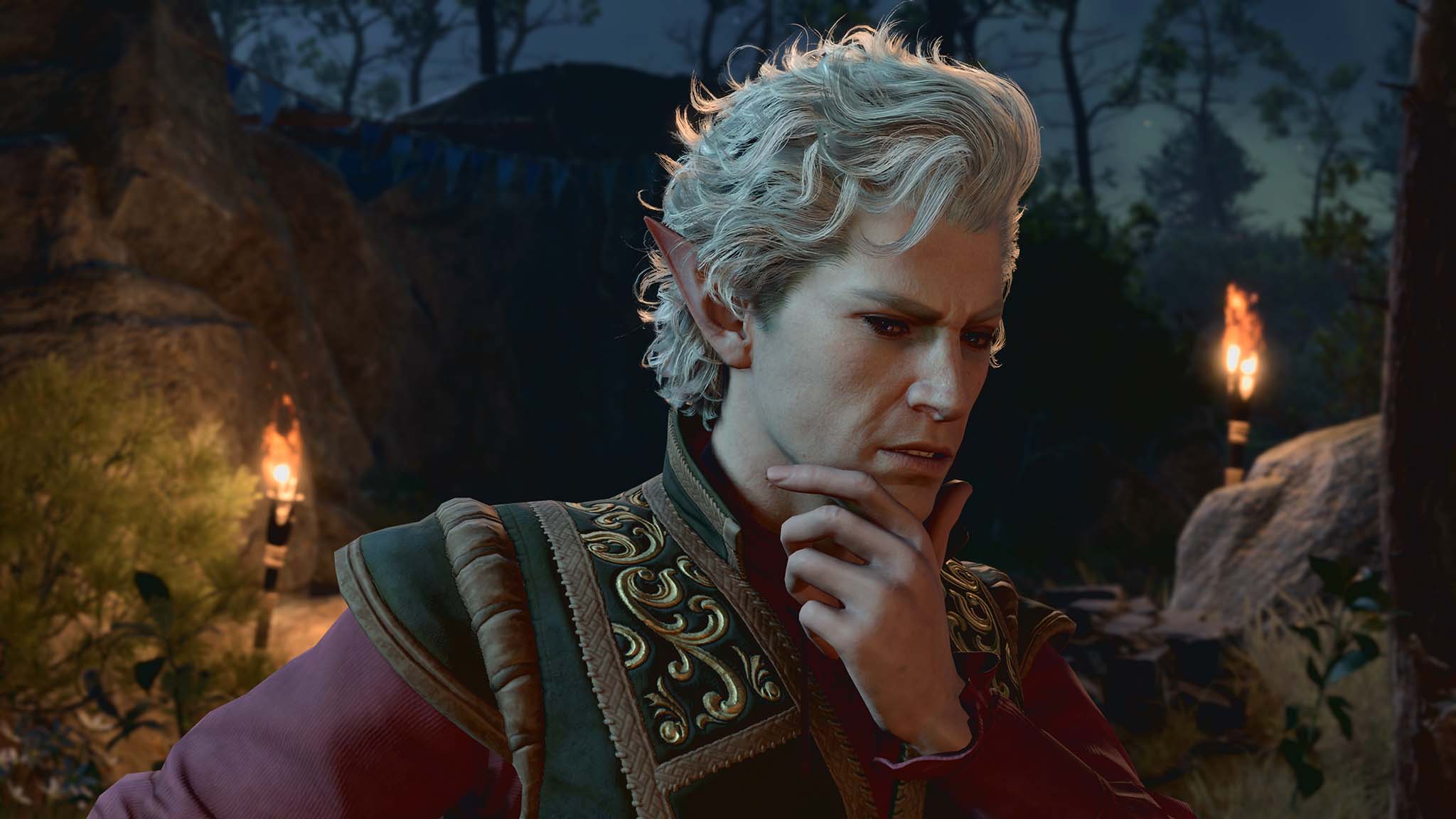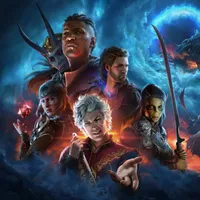Best Baldur's Gate 3 classes: Tier list, subclasses, for main character, and more
Who will you be in Larian's GOTY-winning D&D RPG?
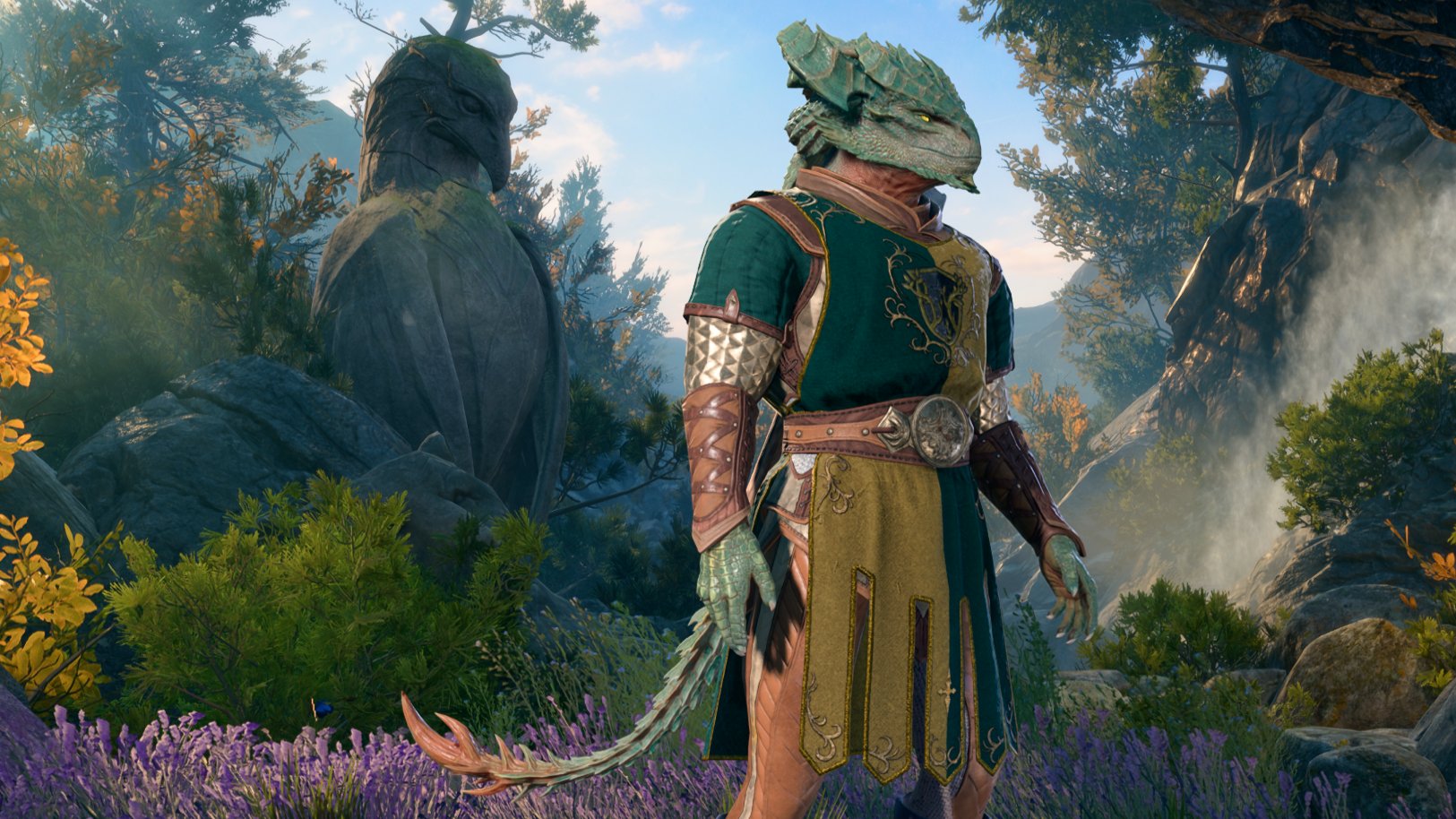
Baldur's Gate 3 is an absolute triumph of a game, and since you're here, you're probably about to jump into the Forgotten Realms and experience the exciting Dungeons & Dragons adventure for the first time (it's finally time, Xbox players). Before you do, though, you'll need to choose a class for your character.
There are 12 classes in total, and each one sports specific strengths and weaknesses along with a variety of different subclasses for fine-tuned buildcrafting. Each one is viable, but some classes are a bit better than others, and you'll probably have a preference depending on what your playstyle is, too. To help you pick a class, we've put together a full breakdown of each one that includes a tier list, detailed descriptions, and suggestions for new players and folks playing alone.
Baldur's Gate 3: Class tier list
While we do feel that some Baldur's Gate 3 classes are stronger than others overall, it's important to stress that you shouldn't feel discouraged from playing a certain type of character just because we've ranked them in a lower position on the tier list. You can play through the game with any class and have a great experience, especially since companions or friends can join your party and help cover any weaknesses you have. Above all else, you should focus on having fun.
With that said, we've put together a tier list below you can refer to if you're interested in choosing one of the character types that's considered to be the best.
| Tier | Class |
|---|---|
| S | Paladin, Bard, Cleric, Wizard |
| A | Druid, Sorcerer, Warlock |
| B | Fighter, Rogue, Barbarian, Ranger, Monk |
Pound-for-pound, the best class in Baldur's Gate 3 is arguably the Paladin, as it's very effective in both combat and social situations and can both take and deal lots of punishment. They can be a little slow in fights and don't provide much value scouting ahead, but they make up for those weaknesses with their excellent durability, consistent and strong damage output, and supportive abilities.
Bards and Clerics are right with Paladin in the S tier as well, with the former offering stellar party support and incredible Charisma and the latter bringing superb healing to the table while also remaining very capable in a fight. Wizards are there, too, as their incredibly spell and subclass diversity makes them a phenomenal class if you're looking for varied and powerful types of ranged damage.
Druids are another favorite of ours. They're like Clerics in that they provide lots of defensive support while holding their own in battle, though they fall short of more specialized classes in these areas. However, their ability to shapeshift and talk with animals gives them some very unique utility that opens doors that would remain closed otherwise.
All the latest news, reviews, and guides for Windows and Xbox diehards.
Baldur's Gate 3: Which class should you play?
Here's a look at everything you need to know about each of the 12 classes in Baldur's Gate 3, including their strengths, weaknesses, and the unique bonuses they give you access to.
Barbarian
- Strengths: Simple and straightforward, tanky, amazing melee damage
- Weaknesses: Poor charisma and exploration utility
- Subclasses: Berserker, Wildheart, Wild Magic
Barbarians are arguably the most straightforward class in Baldur's Gate 3, as their design is quite simple: you get in close, then hack enemies to pieces with devastating melee damage. Their Rage ability buffs their attacks and improves their damage resistance, turning them into a near-unstoppable juggernaut and making them one of the best classes in the game for direct combat.
With that said, the Barbarian's incredible effectiveness in fights doesn't come without some drawbacks. It's very unlikely that you'll be able to talk your way out of sticky situations or persuade people you come across, and you shouldn't expect much success with stealth or scouting, either.
Overall, if you'd like to make a character that fights now and talks later, the Barbarian will be the perfect class for you.
The best Barbarian subclass is Berserker, as it maximizes the offensive power of the Barbarian. With the Frenzy ability, you can land lots of extra attacks, ramping up your damage even higher than you'd be able to with the other subclasses.
Bard
- Strengths: Fantastic party support, incredible charisma
- Weaknesses: Can struggle alone, not very durable
- Subclasses: College of Lore, College of Valour, College of Swords
The Bard is capable of fighting on their own, but their true value is made apparent in a party. They can empower their allies with several of the most potent and powerful buffs in the game, making it easier for them to land high damage rolls, rejuvenating them as if they had taken a Short Rest, and more.
Bards are also extremely charismatic, and will rarely have an issue charming or persuading others. While playing as one, you can often avoid fighting entirely with your silver tongue.
The only real weakness of the Bard class is that it's vulnerable when you're alone or isolated from your party members, as it's not particularly resilient and doesn't deal the high damage you'll get with other character types. Avoid these situations, though, and you'll be fine.
The best Bard subclass is College of Valour. With it, your support buffs will be enhanced, maximizing the effectiveness of the abilities that make Bard such a strong class in the first place.
Cleric
- Strengths: Very adaptable, defensive utility, bonuses against undead
- Weaknesses: Not charismatic or stealthy
- Subclasses: Life Domain, Light Domain, Trickery Domain, Knowledge Domain, Nature Domain, Tempest Domain, War Domain
Clerics are ideal for players that want powerful healing and solid fighting capabilities in one package. They provide plenty of excellent defensive utility to themselves and their allies, and can also fight on the front line in a pinch.
Uniquely, Clerics also sport some powerful abilities that counter undead enemies. With these, you can "Turn" them and make them flee, which will also eventually make them take a huge chunk of damage as you level up.
Like Barbarians, Clerics aren't very good at manipulating social situations or being sneaky. However, their combat versatility is extremely potent, so having one in your party is never a bad idea.
The best Cleric subclass is Life Domain, as it strengthens your healing output and grants you proficiency for heavy armor. Therefore, not only does it improve your ability to keep party members alive, but it ensures you'll be able to wear top-tier protection without incurring penalties.
Druid
- Strengths: Jack-of-all-trades, shapeshifting and animal communication
- Weaknesses: Falls behind specialized classes, middling charisma
- Subclasses: Circle of the Moon, Circle of the Land, Circle of Spores
Druids boast the unique ability to shapeshift into and talk to animals and manipulate nature in interesting ways, making them worth bringing along in many scenarios. These interactions can open up new progression paths you wouldn't be able to take or even know about without a Druid present.
In combat, they can cast nature and elemental spells and are effective at frontline melee fighting, too, though other specialized magic and melee classes will generally outperform them. However, they're far from weak in these situations, and are more than capable of getting the job done.
Ultimately, the Druid is an excellent jack-of-all-trades class that you'll love having in your party for the special bonuses they bring to the table. Even though they're not top-notch fighters and lack charm in "normal" conversations, they're undoubtedly a top-tier choice, and one of the most fun classes to play as.
The best Druid subclass is Circle of the Moon, as it improves your ability to shapeshift with your Wild Shape ability. You'll be doing this often as a Druid, so you may as well improve how effective you are.
Fighter
- Strengths: The ultimate jack-of-all-trades fighter
- Weaknesses: Not specialized, just OK stealth and charisma
- Subclasses: Battle Master, Eldritch Knight, Champion
In terms of combat, the Fighter is the ultimate jack-of-all-trades class. Whereas other character types have more of a specific role in fights, Fighters are capable of engaging their opponents with a huge number of different weapons. Whether you want to play as a frontline brawler, a long-range sniper with bows, or something between, you can do so as a Fighter.
The downside, as you can probably guess, is that you won't be as effective as more specialized classes will be at their role. However, the tradeoff can often be worth it, especially when you get into fights where the ability to switch up your approach on the fly comes in handy.
It's also worth pointing out that you won't be the greatest in conversations, stealth, or exploration, as it's crucial to focus on combat stats like Strength, Dexterity, and Constitution as a Fighter. Make sure you bring along party members that cover these weaknesses.
The best Fighter subclass is Battle Master, as it allows you to fully lean into the class' versatility by learning a large number of different combat abilities.
Monk
- Strengths: Rapid attacks, very mobile, good damage
- Weaknesses: On the squishy side, middling charisma
- Subclasses: Way of the Open Hand, Way of Shadow, Way of the Four Elements
Monk was new to Baldur's Gate 3 when the full version of the game released in August, but now that it's been out for several months and we've had the chance to play around with it, we've given it a B ranking. They join the ranks of the game's many different melee-focused classes, but fight much differently.
Whereas most close-range characters want to armor up, Monks prioritize mobility and shed protection in exchange for high movement speed and quick, rapid strikes with Simple Weapons and/or their bare hands. As a result, they're designed to excel at closing the distance and keeping up the pressure, though their damage isn't the greatest and they're not super resilient. They can also cast some elemental spells, but only get access to them much later than other classes do.
Overall, Monks are perfect for players that want to play as a more agile fighter. Just be aware that they won't be able to take a ton of punishment, and won't be the smoothest talkers either since they need to focus on Dexterity and Wisdom.
The best Monk subclass is Way of the Open Hand. With it, you can heal yourself once between Long Rests, and you can also knock enemies prone or send them flying if you hit them with a Flurry of Blows attack and they don't make a saving throw.
Paladin
- Strengths: Very resilient, great melee damage, high charisma, supportive
- Weaknesses: Slow in combat, poor stealth
- Subclasses: Oath of Devotion, Oath of the Ancients, Oath of Vengeance, Oathbreaker
In terms of overall effectiveness, you'll be hard-pressed to find a class that outshines the Paladin. These oathbound knights are incredibly tanky and deal tons of powerful melee damage, while also assisting their allies with healing and protection spells. Since their spells are Charisma-based, Paladins are also great to have in social situations. If you're looking to do a highly-optimized playthrough or you're a newcomer on Xbox trying to pick the "best class," Paladin is for you.
One of the class' best skills is Divine Smite, which empowers melee strikes to deal extra chunks of Radiant damage on top of your weapon's normal damage. These buffed attacks hit extremely hard, and will often burst down even durable opponents.
Notably, Paladins are on the slow side and their ability to successfully stealth around is lacking due to their low Dexterity. The value they bring to fights and conversations makes up for this tenfold, though.
The best Paladin subclass is Oath of the Ancients, which gives you access to the excellent Healing Radiance ability. This heals you and your allies for 5 HP when cast, then another 5 HP the following turn.
Ranger
- Strengths: Excellent at range, great at stealth, animal companion
- Weaknesses: Damage falls short, not the best melee fighter
- Subclasses: Beast Master, Hunter, Gloom Stalker
Want to play as a masterful archer? Ranger is the class for you, as it's centered around scouting around, sneaking your way into a good position, and hitting enemies with volleys of arrows before they have a chance to close the distance. Though they're capable of fighting in melee, Rangers work best from afar.
Notably, Rangers can also call upon animal companions. These allied critters effectively serve as an extra member of your party, and will augment your damage and take some aggro off you and your allies.
The major downside of the Ranger class is that its damage over time falls short of what you can do with other character types, though you could argue it's a necessary tradeoff since you'll generally be in safer positions than melee-oriented classes and will be landing large bursts of damage. Still, don't expect top-notch DPS if you're a Ranger.
The best Ranger subclass is Beastmaster. It helps you summon animal companions frequently, which are the main draw of the class aside from its stealthy sniping capabilities.
Rogue
- Strengths: Exceptional stealth, sneak attack damage, scouting
- Weaknesses: Struggles in long fights or enclosed areas
- Subclasses: Thief, Arcane Trickster, Assassin
Rogues are the thieves and assassins of Baldur's Gate 3, and thanks to their extremely high Dexterity, they're unmatched when it comes to stealth. This makes them superb at scouting enemy positions or disarming traps, and they can even pick locks and pickpocket loot without too much trouble.
Rogues can also dish out an incredible amount of damage in the early stages of battles, as their sneak attacks are deadly. However, they struggle in longer fights since they're not very durable and can only wear Light Armor. Sneak attacks are hard to pull off in small and enclosed arenas, too, as there's not much room to flank.
Making the most of the Rogue's kit requires lots of patience and planning, as it's crucial to maximize the value of their backstabs. Fans of stealthy gameplay will love the class, but if you're looking for something simple and direct, you should pick something else.
The best Rogue subclass is Assassin, which helps you double down on backstabs with the Assassinate effect. This boosts your attack rolls when you're hitting an unaware enemy, and guarantees that those attacks will be critical as well.
Sorcerer
- Strengths: Most potent magic, charismatic
- Weaknesses: Not stealthy or durable, fewer spells than Wizard
- Subclasses: Draconic Bloodline, Wild Magic, Storm Sorcery
If you want a spellcaster that can deal the best magic damage in the game, Sorcerer is for you. With the class' Metamagic ability, you can cast stronger, more versatile versions of your spells in exchange for resource points. For example, you can cast verbal spells without speaking via Subtle Spell, which counters Silence completely. Another powerful upgrade is Twinned Spell, which allows you to hit two targets with one spellcast.
That extra power and utility comes with one big downside, though. Compared to Wizards, the number of spells you can use is considerably fewer, so your repertoire won't be as diverse. You'll also recover your spells slower than Warlocks can.
Note that like Warlocks, Sorcerer magic is Charisma-based, so you should be able to charm others or talk your way out of battles fairly often.
The best Sorcerer subclass is Draconic Bloodline. While you'll never be as durable as a frontline melee class, the health and armor rating boosts this subclass gives you while you're unarmored will definitely help you stay alive in sticky situations.
Warlock
- Strengths: Can recover spells from Short Rests, charismatic
- Weaknesses: Not stealthy or durable, magic isn't as potent or diverse
- Subclasses: The Fiend, The Great Old One, Archfey
Warlock magic isn't as potent as what you'd get with a Sorcerer, and their spell variety falls short of the Wizard's, too. This makes them a bit of an odd choice, though they do have one major advantage: they get their spell slots back after Short Rests (the Bard's Song of Rest procs this). Sorcerers and Wizards have to perform a Long Rest for theirs, so if you want a magic caster with maximum uptime, you'll want a Warlock.
Warlocks are also worth considering for their extremely powerful Eldritch Blast cantrip, which is one of the best in the game and can be built into with Eldritch Invocations.
The best Warlock subclass is The Fiend, which is notable for its ability to drain temporary health from enemies you kill and add it to your own health pool.
Wizard
- Strengths: Widest array of magic, high Intelligence
- Weaknesses: Not durable or charismatic, spells aren't as potent as Sorcerer
- Subclasses: Abjuration School, Conjuration School, Divination School, Enchantment School, Evocation School, Necromancy School, Illusion School, Transmutation School
Last but certainly not least is the Wizard, which is arguably the best of the three main magic casting classes. Wizards have eight different subclasses to choose from and can cast a huge number of spells, giving them unmatched versatility and adaptability. This makes them significantly more effective the more you push into the mid and late game, as you'll gradually add more and more spells to your repertoire.
Wizard spells may not hit as hard as Sorcerer ones, but the sheer number of them means that you'll always be prepared for any situation you find yourself in. If you know what types of enemies you'll be encountering soon, you can also prepare ahead of time by putting together the perfect "loadout" of spells.
Wizards cast with Intelligence instead of Charisma, so they're not very adept in conversations like Warlocks and Sorcerers are (high Intelligence does come in handy sometimes, though). They, unlike Warlocks, also need Long Rests between major engagements to get back their spell slots.
The best Wizard subclass is Evocation School. It's completely centered around giving you lots of powerful offensive spells to cast, which is the main reason you would want to play as this class. For more on the others, check out our rankings for all the Wizard subclasses.
Baldur's Gate 3: Best class for main character
When picking a class for your character, it's best to go with one that brings a lot of utility while also fitting into a wide array of party compositions well. Overall, we think you'll be best served by the Paladin or the Bard, as both are capable of assisting allies with powerful support utility and also boast high charisma that comes in handy during social situations. The strength of the Bard's supportive abilities is ultimately higher, though Paladin will serve you better in direct combat.
Cleric is an excellent option as well, if you'd prefer to trade some of the Paladin's fighting prowess and charisma for strong party healing and some useful bonuses against undead foes. This healing makes the class an amazing choice in co-op, too, especially if your group is playing on a harder difficulty.
Baldur's Gate 3: Best class for beginners
If you're new to D&D-based RPGs like Baldur's Gate 3 or you're a beginner jumping into the Xbox version that finally launched, you may want to pick a class that's easier to play or one that's more open-ended. For that reason, we strongly recommend either the Barbarian or the Fighter for beginners. The Barbarian's frontline brawling playstyle is quite simple, making the class very easy to pick up and play. Fighters, meanwhile, are highly versatile and can use a wide variety of different weapons, allowing you to adapt to any situation.
Of course, these classes have their downsides — Barbarians aren't great for anything that doesn't involve fighting, and Fighters lack the specialized power you can achieve with some of the other classes. Despite these drawbacks, though, both of them are great picks for new players.
Baldur's Gate 3: Best class for solo play
Forgoing a party and choosing to adventure alone? It's definitely doable, but you'll need to make sure you pick a class that's flexible or is capable of mitigating the numbers disadvantage. Paladins and Fighters are fantastic options for the former type of character, while Ranger is your best bet for the latter.
The Paladin's high health pool, proficiency with heavier armor, defensive support abilities, and high damage make them a very strong solo combatant, and their high Charisma means you'll often be able to get out of hostile situations without ever drawing your sword. Fighters, on the other hand, wield a great number of weapons and can pivot to meet whatever they're fighting with a reliable setup.
Alternatively, there's the Ranger, which is a great choice for solo play due to their ability to summon an animal companion. Rangers also excel at sneaking and taking favorable positions on high ground to rain arrows on enemies from, and while their damage isn't the best, you can still often pick off many foes before they climb all the way up to your vantage point to hit you.
Baldur's Gate 3 is available now on Xbox Series X|S, PC, and PS5. It stands tall as one of the best Xbox games and best PC games of 2023, and is a must-play for fans of fantasy RPGs and the D&D universe.
Baldur's Gate 3 | See at GOG
Enter the Forgotten Realms while playing as a customized character of your own choosing. The decisions you make determine what you encounter as you discover more and more about the stories and world around you.
Also at: Xbox

Brendan Lowry is a Windows Central writer and Oakland University graduate with a burning passion for video games, of which he's been an avid fan since childhood. He's been writing for Team WC since the summer of 2017, and you'll find him doing news, editorials, reviews, and general coverage on everything gaming, Xbox, and Windows PC. His favorite game of all time is probably NieR: Automata, though Elden Ring, Fallout: New Vegas, and Team Fortress 2 are in the running, too. When he's not writing or gaming, there's a good chance he's either watching an interesting new movie or TV show or actually going outside for once. Follow him on X (Twitter).
